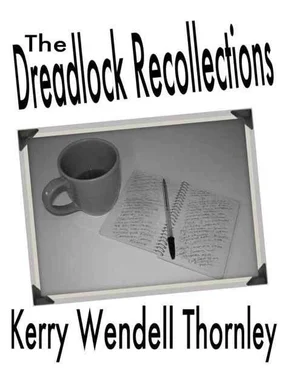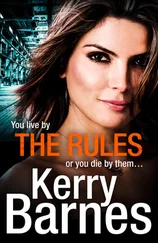"Show me an artist who distorts the human body in his paintings, and I will show you a man who hates people," I would say, echoing the words of Walt, an Ayn Rand student from New York I had met in the Quarter.
There were also people that Brother-in-law seemed to like as much as he detested many others. One of them was Charles A. Lindbergh. Not only did he mention him in admiration, he also kept bringing up the kidnapping of Lindbergh's son.
We both liked William F. Buckley, Jr., publisher of The National Review .
Why he hated Pope John XXIII was unclear to me. I considered him both charming and witty. From the viewpoint of Southern rightists, Pope John was disliked for excommunicating some segregationists who also happened to be Catholic, prominent citizens of New Orleans among them. So I figured it was probably somehow related to that.
At least once, Brother-in-law asked me what I thought of Dr. Land, inventor of the Land-Polaroid camera. I liked him. Brother-in-law seemed pleased.
Information on page 42 of The U-2 Affair by David Wise and Thomas B. Ross (Random House, 1962) indicates that Edwin H. Land, head of the Polaroid Corporation and developer of the Polaroid camera, was an active member of the Science Advisory Committee, established by the White House in developing the U-2 concept with Richard Bissell of the Central Intelligence Agency.
Somebody Brother-in-law didn't like, as might be expected, was Mahatma Gandhi. "You know, during his fasts, he used to chew a weed that contained a drug that numbs hunger pangs."
Since Gandhi was remembered for his altruism, and since Ayn Rand rejected altruist morality as destructive, I welcomed this information. "He was also very harsh on his own family," I added. "Gandhi was dictatorial toward his wife and he drove one of his sons to alcoholism."
Both Brother-in-law and I felt enormous contempt for Bertrand Russell.
"'Better Red than dead,' he says," I complained. "Ayn Rand says that is not the choice. She says, 'Better see the Reds dead.'"
"Yes!" His agreement seemed genuine and enthusiastic.
"Bertrand Russell also says, 'Nothing is certain except that nothing is certain.' What rot! What a confession about his own mind! Thinking he could escape the ambiguities of language, he devised symbolic logic, and when he found his system didn't work as he hoped it would, rather than admitting he failed, he blamed logic!"
Besides Brother-in-law and maybe Slim, among my own friends in New Orleans, only one was a racist: Carlos Castillo, owner of a Mexican restaurant at the corner of Exchange Place, across from the courthouse, in the building that housed The Fencing Master just previous to my arrival in town.
Jessica and I used to eat at Castillo's Mexican Restaurant and we soon found the proprietor to be stimulating, well-read and enterprising. Able to hold forth on any theme for hours, Carlos would shake a kitchen knife in the air and pontificate in a convincing way with a mixture of facts and barnyard observations in flowery Latin rhetoric.
A firm believer in anything "nat-ur-al" (pronounced by him as if it were three distinct words), including barefoot and pregnant women, separation according to race, and free market economics, Carlos both maddened and delighted me.
In that respect he seemed much like Brother-in-law. Once I took Gary and Slim to Castillo's with the expectation they would probably hit it off.
Sure enough, Brother-in-law and Carlos swapped racist jokes over coffee for about a quarter of an hour that night and seemed to be getting along famously.
After we departed, I asked Brother-in-law what he thought of Carlos.
"I don't like him," he answered.
"Why?"
"He's a Mexican."
In early November of 1963, Slim and I arrived at the little house in Harahan, Louisiana, and Brother-in-law said to me, as soon as I sat down, "Kerry, give me some ideas about assassinating John F. Kennedy."
I was more than happy to oblige; for years I had been saving up ideas about how to murder the President. I'd spoken of assassinating Kennedy to anyone who would listen to me ever since my arrival in New Orleans.
My plans for murder ranged from concealing sodium in his vitamin capsules so as to blow his stomach to pieces to designing a remote control model airplane with a bomb in it to hit him from a safe distance through a White House window.
Brother-in-law just sat there on the sofa, nodding eagerly and grinning excitedly at the worst of my suggestions. It was my turn to be moving about and gesturing wildly.
When I finally wound down, he just smirked and said, "Give me some more ideas."
Thereupon I ran through my second-rate notions for disposing of the man Ayn Rand and I considered a fascist-socialist tyrant. Though most of these ideas seemed impractical for one reason or another, Brother-in-law seemed happy to hear them, and I figured maybe he would offer suggestions for improving their weak points.
To my surprise he contributed nothing. Collecting ideas rather than hashing them out seemed his sole purpose.
"Now, Kerry, I think when we assassinate Kennedy, if it becomes necessary to sacrifice one man in order to protect the assassins, then we should go ahead and sacrifice one man."
"I agree with that."
"And I think that if, besides sacrificing one man, we also have to sacrifice one woman for that purpose, then we should sacrifice that woman."
"Yes," I said, less certain now of where all this was leading.
"And then, if we have to sacrifice two men and two women, I think we ought to go ahead and sacrifice two men and two women. How about you?"
Slim was looking at me and laughing silently. Obviously I looked a little scared.
"I agree," I replied firmly, annoyed at Slim's amusement.
And so it went, a most baffling discussion, settling at last on what number of sacrificial victims I do not remember, and to what reasonable end I could not begin to guess.
Already, though, it was beginning to sound like a terribly complicated and cumbersome conspiracy. Just how many people did this guy plan to involve, anyhow?
"And what do you think about letting Jimmy Hoffa in on this thing?"
"I think Jimmy Hoffa is being unfairly persecuted," I told him. "I think Jimmy Hoffa is a good man. I saw a book on a newsstand in Santa Ana this summer called Jimmy Hoffa's Hot . It was sympathetic to him. I wish I'd bought it."
After allowing a considerable silence to elapse, he grinned obnoxiously and said, "Next we'll get Martin Luther King."
"Aw, what do you want to kill King for?" I asked. It was not the first time he had made this suggestion.
Brother-in-law just laughed as if it pleased him to say things he knew would annoy me.
"And, Kerry, I think the best way to kill President Kennedy and get away with it would be to involve all kinds of people, but to keep them under the impression they are working on other projects."
"If you must involve large numbers of people, yes, I guess that would be the best way to go about it."
"But in order to do that," he said, "you would have to have a very large bureaucracy under your control." At this point he stood and walked to the center of the room, where Slim was already standing.
I had been seated on the footstool in front of the sofa and as I stood and followed, I said in a disappointed tone of voice, "Yes." For if anything was certain in my mind, it was that scrawny, T.B.- ridden Slim Brooks and his weird Nazi burglar of a brother-in-law did not control any bureaucracies.
Yet, to my bewilderment, Slim looked at Gary and Gary looked at Slim, both with expressions of absolute triumph in their eyes, being so obvious about it as to seem melodramatic. They had to be putting me on. I felt dispirited and depleted. Another afternoon had been wasted engaged in humoring the pipe dreams of a cheap braggart.
Читать дальше












